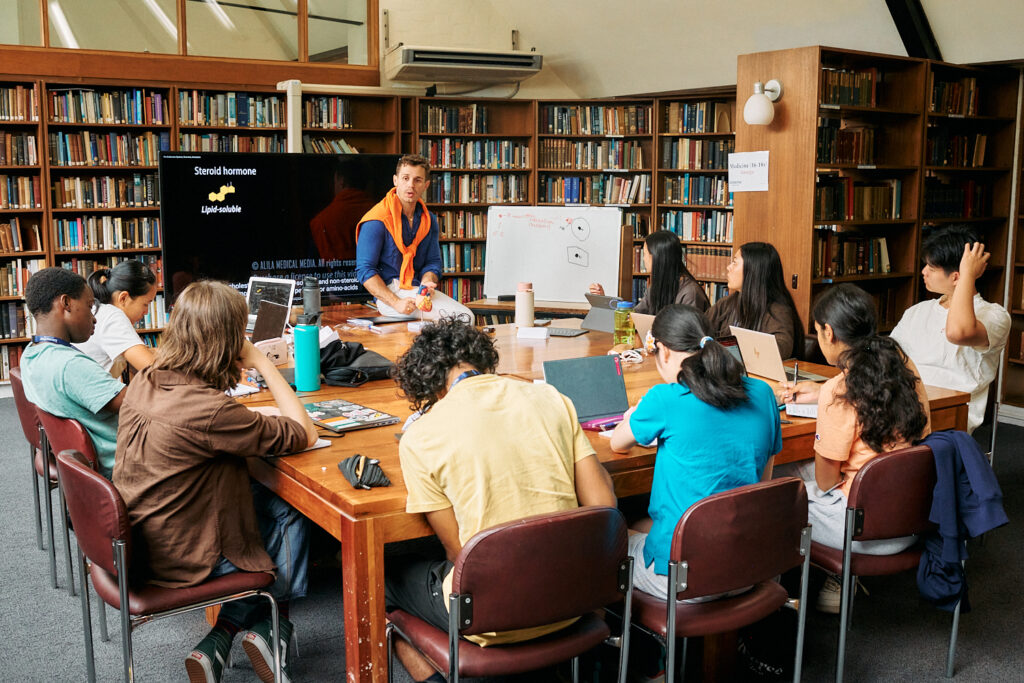With the ever-increasing cost of university and the expanding list of different university courses, choosing a degree to study at university is becoming even more of a significant moment for students. We’ve collected together links to our resources on how to choose a degree to study at university below, along with general advice on the decision-making process.
Advice on specific subject study:
- Why Study Law?
- Why Study English?
- Why Study Architecture?
- Types of Law
- What’s It Like to Study Philosophy?
- Why Study Business Law?
- Why Study Economics?
- Why Study English Literature?
- Why Study Chemistry?
- Why Study Artificial Intelligence?
- What’s It Like to Study Maths at Uni?
- What Is Architecture At University Like?
- What Is Mathematics At University Like?
- What Is a Bachelor of Fine Arts At University?
Here, we’ve collected our articles about career prospects for graduates of each degree.
Advice on choosing where to study:
Miscellaneous advice:
But there’s no need to fret or panic about this: it is an incredibly common problem faced by prospective university applicants and there are many straightforward solutions for it.
If this sounds like you, read on through my checklist of things to think about to help you choose your perfect university course!
Before You Choose a Degree, Ask Yourself: Are You Ready For University?
The first thing you need to work out is whether or not your lack of decisiveness about the course you want to study at university is actually because you don’t want to go to university yet, or even at all.
Although it may feel like our society is fixated on university as the one-and-only option following A-levels, this really isn’t your only option.
Apprenticeships offer a way of being paid to study (not usually a huge amount though, so make sure you look into it), so you wouldn’t need to take out a loan like you would to attend university.
Alternatively, lots of people go straight from school to their first job, and complete qualifications to boost their career part-time while working.
Of course, you might just need a bit more time to think about the course you want to study. This is quite normal: with the pressures of studying for A Levels, you can easily run out of time when the UCAS deadlines come around.
If that’s you, consider the ever-popular option of taking a gap year, working and travelling before taking on your uni degree. If you do decide to take a gap year before you go to university, you’re not totally off the hook from making important decisions – like what you’re going to do with a whole year of freedom!
Don’t Just Choose a Degree Because You’re Desperate
This is really important: if you take out a student loan (which nearly all students will) once you start a university degree, you’ve already committed yourself to a term’s worth of loan, which you will have to pay back.
Many don’t think through their course before starting it and so have to drop out and move course or even university. Although there is no shame in dropping out if you’re miserable, this situation is obviously best avoided, because you will have paid for that term.
On the bright side, universities will often let you change course once you’ve started, if it’s not too far into the course. Lots of people end up swapping during the first few weeks of term, and some even after the first year – but research this beforehand if you’re not sure.
You can also apply for deferred entry after you’ve received your offer. They’ll save you a space, you have a year off to think about it before you pay any money to the institution.
Deferring is not possible for all courses, but is a popular option, with around eight percent of students choosing to go to university this way.
Research, research, research…
Maybe you broadly know what kind of subject you want to study at university already, but want to drill down and get specific. For example, you know that you want to study something related to biology, but not whether you want to study biological sciences, biomedical sciences, marine biology, or something completely different.
There is an easy solution to this! Research the different courses as much as possible. You can do this by reading the syllabuses, checking out the recommended reading, and even contacting current students on that programme. You can ask them for their honest opinions of the teaching quality, the amount of contact time, the resources available and so much more!
Your sixth form or college will also have careers advisors who you can talk to about this kind of problem, so make you make the most of that free resource while you can.
Join the Immerse Education 2025 Essay Competition
Follow the instructions to write and submit your best essay for a chance to be awarded a 100% scholarship.

Keep Your Options Open: Consider a Joint Honours Degree
If your problem is less ‘I don’t know what I want to study at university’, and more, ‘there are two things I want to study at university and I can’t choose between them’, there is an easy solution: joint honours!
Not every course offers joint honours (subjects such as medicine do not) but many do, and it’s a great option for students who really love two different subjects and don’t want to lose one when to choose to study a single-track degree.
These combinations can often be highly beneficial for your future career, such as studying Business with a modern language.
Consider Studying in Scotland
Scottish university education also has an interesting quirk that it is really important for students to know about. It’s another solution for students who can’t narrow down their options. In Scotland, you study for four years, beginning with around three different subjects and gradually specialising as you progress through the degree and discover what you really enjoy.
For employers, an applicant who has studied a variety of subjects will have a breadth of knowledge and will look impressive as a consequence.
Plus, as many final-year students will tell you, studying the same subject for three or four years can get pretty intense, and may even cause you to lose the excitement for the subject which made you choose that degree in the first place.
You can avoid this by keeping your options open and exploring a range of subjects during your time at university. Many universities also offer the opportunity to take a module outside the main discipline or to audit classes from outside your subject. It’s a great idea to take these opportunities if you feel like you want to keep your education broad.
Don’t Make a Panic Decision: Take Some Time, and Enjoy the Process!
Take your time to read through our resources, and if you still feel lost, turn to conversations with students, professors, teachers and parents. Ask as many questions as possible and lean on those who know you best, too – they can help you with introspection! Once you have a good idea of what’s available and who you are as a student, you’ll probably be more confident when it’s time to choose a degree to study at university. Whether you are undecided between Business Management and Economics, or between Engineering and Mathematics, just take plenty of time to properly think through what you want to study at university before you commit. I guarantee you won’t regret this in the long run, and it will help you make the best possible decision for your future!
If you’re hoping to experience a university campus or degree up close before committing to a decision, our Academic Insights programmes provide this opportunity for students aged 13-18.


























